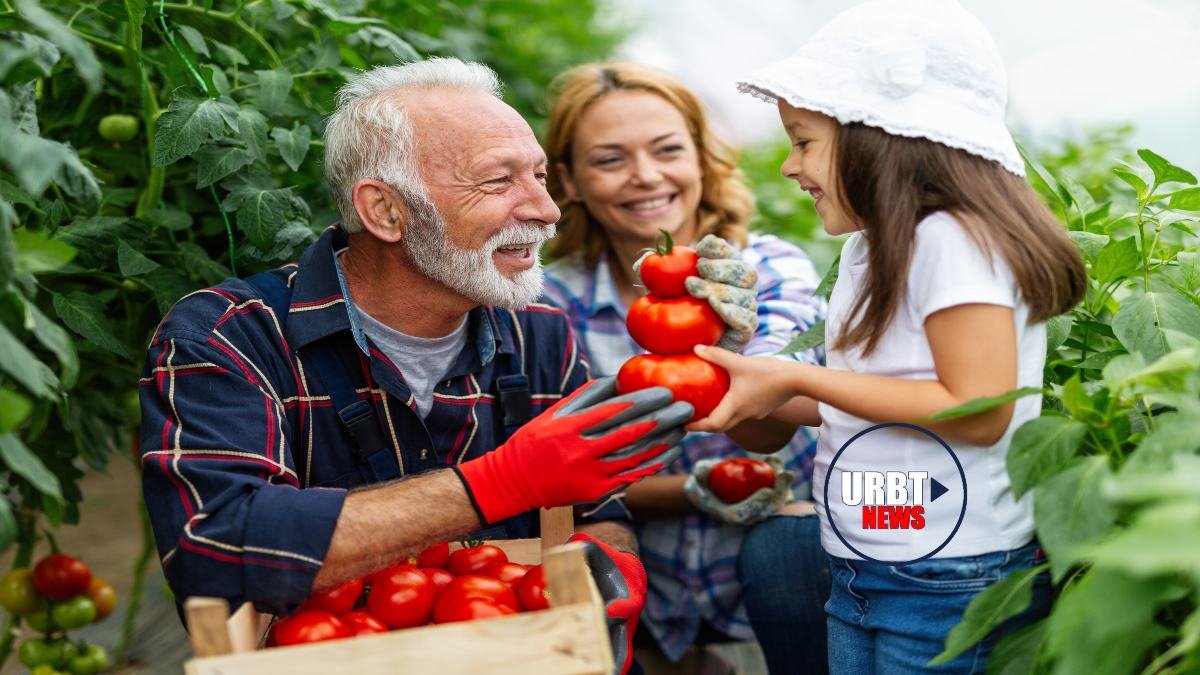
PepsiCo and Walmart Aim to Support Regenerative Agriculture
Business News
PepsiCo and Walmart Aim to Support Regenerative Agriculture
Published
3 years agoon

PepsiCo and Walmart Aim to Support Regenerative Agriculture. PepsiCo (NASDAQ: PEP) and Walmart (NYSE: WMT) today announced a 7-year collaboration to pursue $120 million worth of investments focused on supporting U.S. and Canadian farmers in their pursuit to improve soil health and water quality. By establishing and scaling financial, agronomic and social programs, it aims to enable and accelerate the adoption of regenerative agriculture practices. 2 million acres of farmland deliver approximately 4 million metric tons of greenhouse gas (GHG) emission reductions and removals by 2030. This represents roughly equivalent to the amount of electricity needed to power 778,300 homes for one year.
Commenting on the voluntary adoption of regenerative agriculture practices, Jeff Huffman, owner and operator of Island Farms LLC in Maxwell, Neb., said, “From my perspective, embracing regenerative agriculture is essential. It’s good for farmers, not only because it’s beneficial to the environment and our food quality, but also for the profitability. If you use less fertilizer and you grow a bigger crop, or if you use less water and can still grow the same size of crop, it strengthens your farm in a way that benefits the bottom line and our environment.”
PepsiCo’s and Walmart’s businesses are dependent on farmers

“Our sustainability strategy is built to make the everyday choice the sustainable choice for our customers,” said Jane Ewing
PepsiCo’s and Walmart’s businesses are dependent on farmers to grow ingredients used to make products consumers enjoy every day. With a supply chain for the two companies that stretches across North America and involves a large volume of critical crops – including potatoes, oats, corn, wheat, soybeans and rice – sustainability will look different from commodity to commodity, region to region and even farm to farm. The collaboration between PepsiCo and Walmart offers a voluntary, flexible approach to regenerative agriculture that gives farmers a seat at the table, recognizes the diversity of agriculture and that one size does not fit all.
“Successful sustainability starts and ends with trust. At PepsiCo, we work very hard to earn the trust of the farmer so they understand that we are investing in their legacy, and they can hand their farm down to the next generation,” said Jim Andrew, Chief Sustainability Officer, PepsiCo. “Farmers know their business better than anyone else, and what we hear from them is that for regenerative agriculture to make business sense, three things need to happen. They need economic support, social and cultural support, and agronomic support. This strategic collaboration with Walmart will advance our shared goal to have farmers’ backs as they transform farming in a way that benefits the planet and people.”
A shared responsibility may inspire other companies to colaborate.

“At Walmart, our sustainability strategy is built to make the everyday choice the sustainable choice for our customers,” said Jane Ewing, Senior Vice President for sustainability at Walmart. “This collaboration with PepsiCo is a great example of how we are prioritizing the expansion of regenerative agricultural practices among farmers across North America so that we can continue to make quality products affordable and accessible for customers. This collaboration aims to help elevate farmer livelihoods, engage them on how to more sustainably manage soil health, increase yields and create a model that others can mimic across other product categories, including encouraging additional investments in regenerative agriculture by other brands.”
PepsiCo and Walmart have a shared focus on supporting farming communities while improving soil and water health, as well as lowering carbon emissions. As the largest convenient food and beverage company in North America, a resilient food system is essential to PepsiCo’s business and its ability to meet its ambitious pep+ (PepsiCo Positive) goals, which include driving the adoption of regenerative agriculture practices across 7 million acres by 2030 – an area approximately the size of PepsiCo’s agricultural footprint – and reducing absolute GHG emissions by more than 40% across its entire value chain by 2030 (against a 2015 baseline) while striving toward net-zero emissions by 2040.
This effort is a new model for PepsiCo, marking our first, large-scale strategic collaboration
PepsiCo and Walmart Aim to Support Regenerative Agriculture. “This effort is a new model for PepsiCo, marking our first, large-scale strategic collaboration focused on sustainable agriculture with a retail partner,” said Steven Williams, Chief Executive Officer, PepsiCo Foods North America. “Farmers are critical to our business, and many of the brands our consumers know and love rely on ingredients that we source straight from the farm. By joining forces with Walmart, we’ll be empowering farmers through education, upfront investment in outcomes, peer coaching and cost-sharing – and hopefully inspiring others to join us.”
You may like
-


Single Men & Step-Fatherhood: Crucial Considerations Before Taking the Plunge
-


Jesse Jackson Dies at 84: Civil Rights Icon’s Legacy
-


Indie Media’s Rise How They Thrived Before Venture Capital’s Diversity Push
-


Minority Births Surpass White Births: A Demographic Shift Impacting America
-


Hot Girl Summer: Your Guide to Confidence, Fun, and Intentional Living
-


Shrek as a Cautionary Tale: Unmasking the Ogre’s Life Lessons


